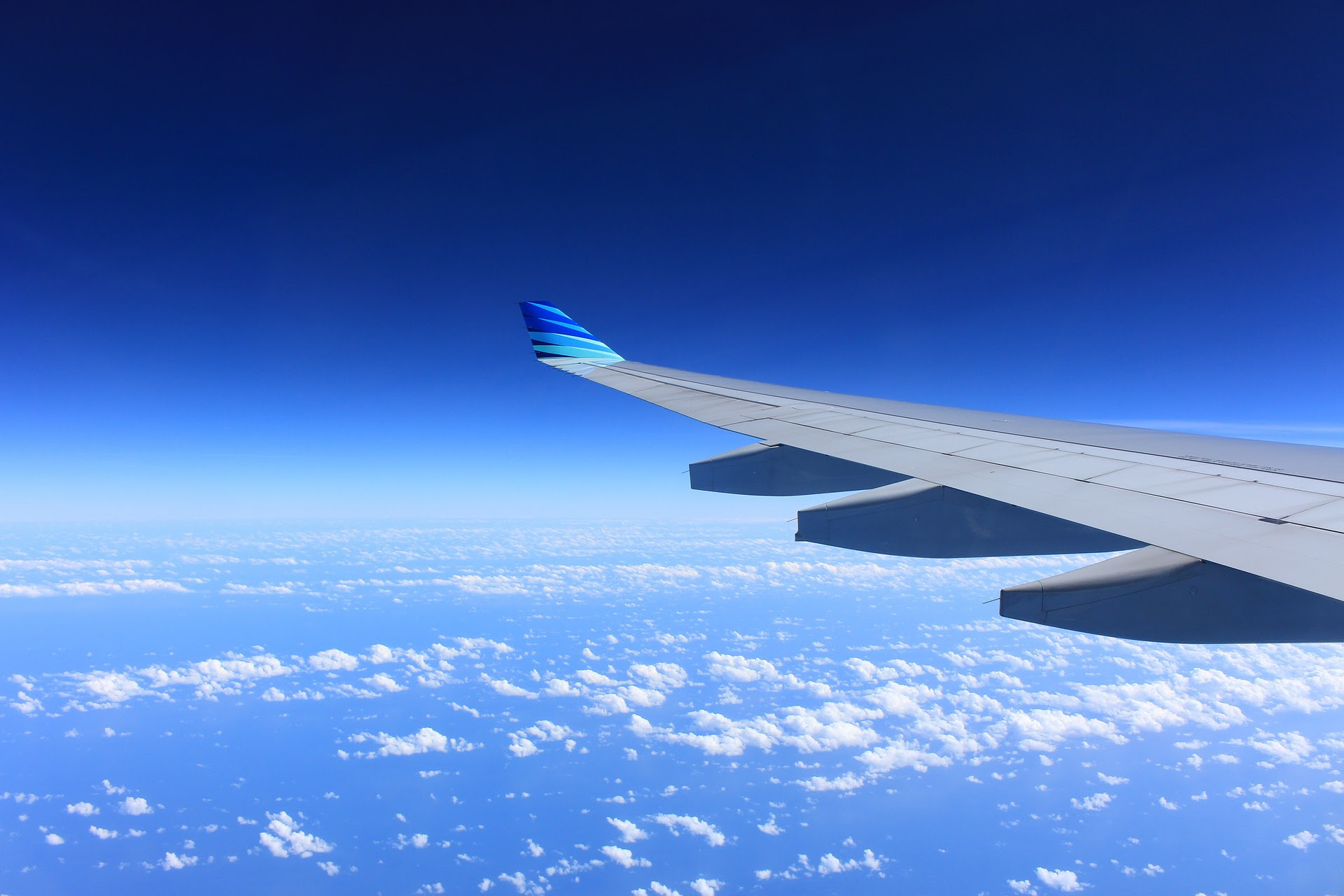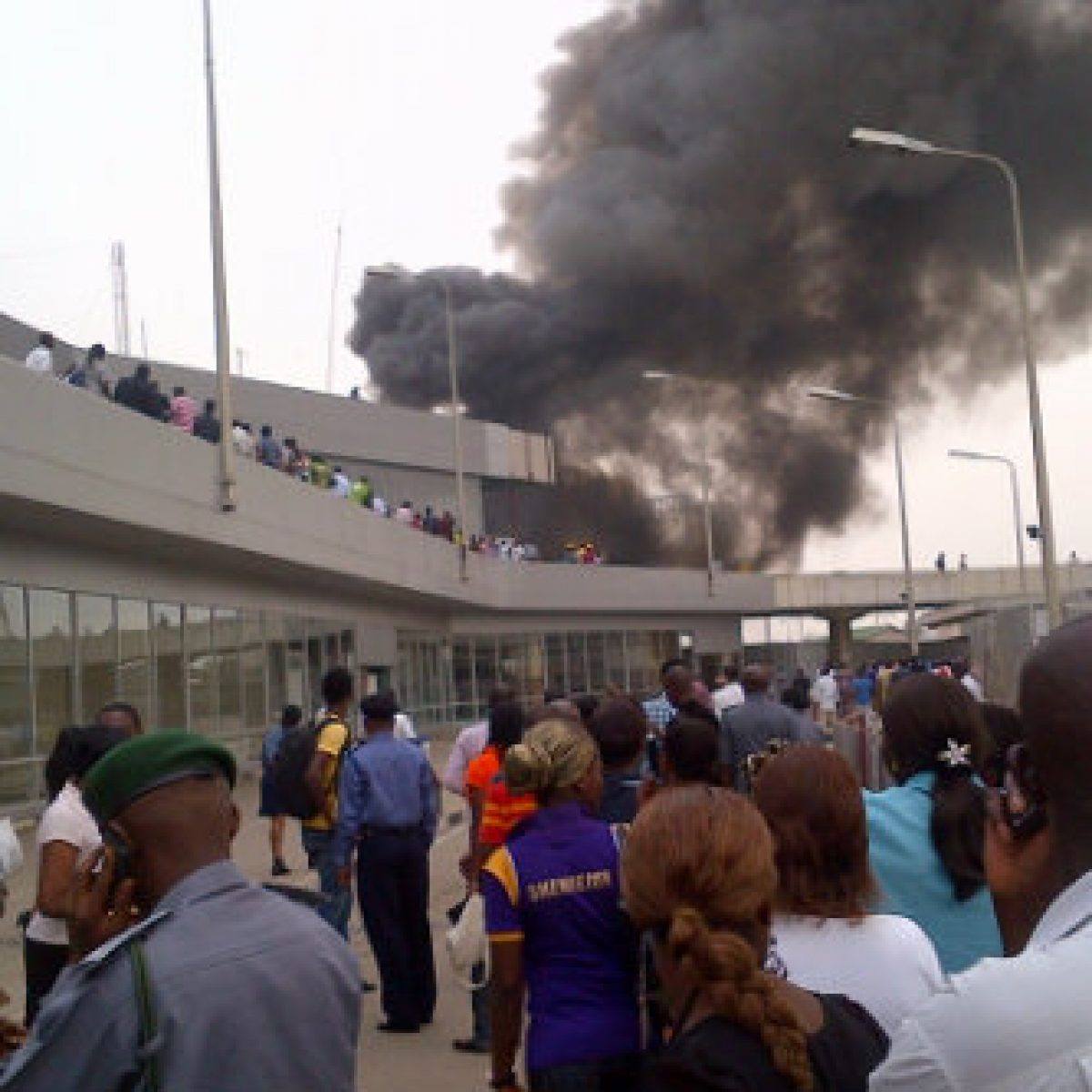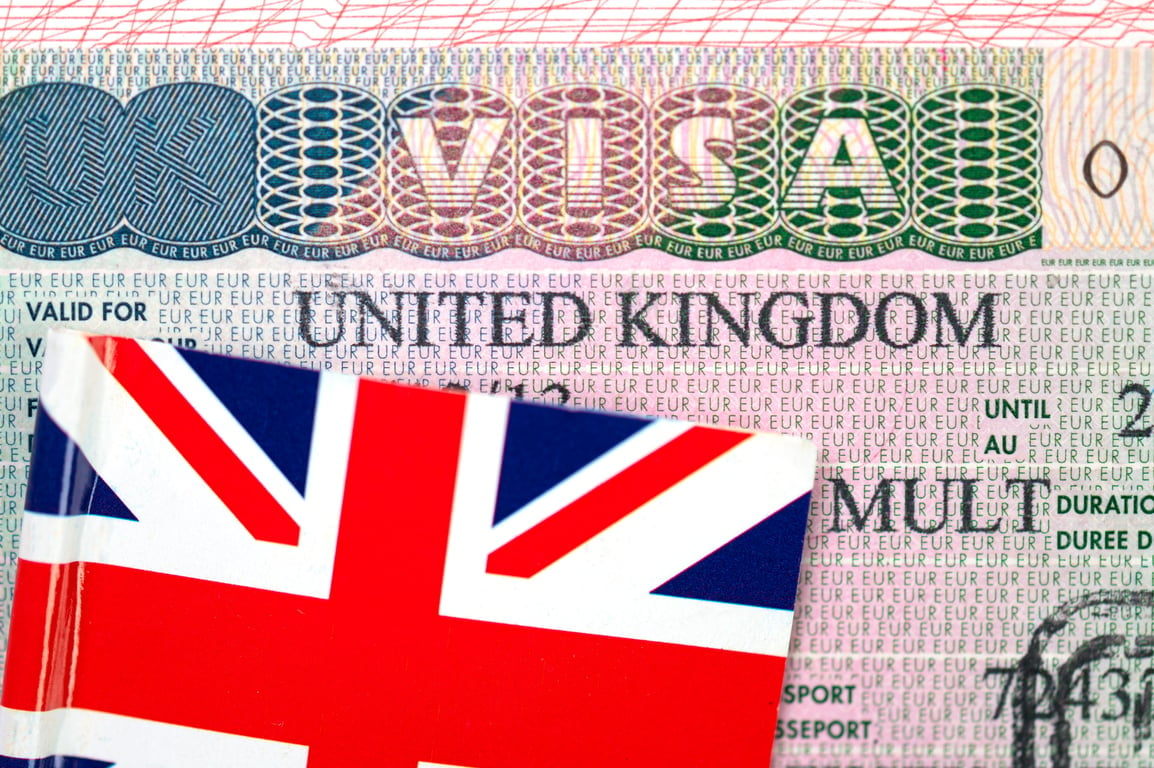Travel/Tourism
Investment Key to Future Growth for Global, African Aviation

The aviation sector’s recovery from COVID-19 has been remarkable, with revenue passenger kilometres (RPKs) and available seat kilometres (ASKs) reaching close to pre-pandemic levels, according to the International Air Transport Association (IATA). In the fourth quarter of 2023, traffic was at 98.2% of pre-pandemic numbers. Additionally, the sector is expected to experience record fleet and maintenance, repair, and overhaul (MRO) growth this year.
Oliver Wyman’s latest Global Fleet and MRO Market Forecast predicts that the number of commercial aircraft worldwide will expand at a compound annual growth rate (CAGR) of 2.5%, reaching more than 36,400 aircraft by the start of 2034. This represents a 28% increase over the current fleet of around 28,400 aircraft. The forecast also indicates that global MRO spending is expected to reach US$104 billion, surpassing the pre-pandemic peak in 2020. That spending will still, however, fall short of demand. By 2034, MRO demand worldwide is projected to reach US$124 billion.
In Africa, the fleet is expected to grow about 25% by 2034, reaching over 1,400 aircraft. The largest growth is projected to occur between 2029 and 2034, with a CAGR of 2.7%. For example, South African Airways has announced plans to expand its fleet to approximately 40 aircraft over the next decade, from just 13 today.
“The growth in Africa reflects an expected expansion of demand. Figures from IATA show that African passenger numbers will nearly double by 2035. This will require airlines to continue to invest in expanding their fleet, as well as looking at new routes to add to their network,” says Paul Calvey, Oliver Wyman Partner and Head of its operations in South Africa.
But while the global and African numbers reflect growth, they fall short of pre-pandemic predictions. Before the pandemic, it was anticipated that the global aircraft fleet would reach 36,000 by 2030. Now, it is unlikely to reach that size before 2036, resulting in a six-year setback in industry growth due to COVID-19. From an African perspective, this slow recovery is particularly understandable. Several African airlines folded as a result of the COVID-19 pandemic, and in 2020 alone, the continent’s aviation sector lost US$7.7 billion in revenue.
This highlights the magnitude of the setback caused by COVID-19. Additionally, the current global fleet size isn’t significantly higher than the 27,492 aircraft that were in service in 2019. To regain its previous trajectory, the aviation sector will require significant investment, much of which will depend on global economic growth.
Investment challenges in the aviation industry
The forecast identifies several challenges that hinder investment in the aviation sector. These include the impact of COVID-19, inflation, and shortages of skilled labour, raw materials, and aviation maintenance technicians (AMTs) and engineers. The industry must modernise and optimise production along the supply chain, while the MRO support network faces similar challenges in keeping aircraft operational.
“While the industry must invest in overcoming those challenges, it’s important to remember that it’s not easy for it to do so at present, according to a number of trends,” says André Martins, Partner and Head of Transportation and Services for India, Middle East, and Africa regions (IMEA) at Oliver Wyman.
He continues that “rapidly rising interest rates have made borrowing far more expensive than it was pre-pandemic. Mounting inflation, meanwhile, has created significant wage pressure across the industry. In the US, for instance, captains’ salaries at mainline airlines increased by 46% between 2020 and 2023, while those flying for US regional airlines saw their wages rise by 86%. Furthermore, this inflationary environment has led to higher costs for aircraft components and other supplies compared to before the pandemic.”
Other cost factors, such as escalating conflicts in the Middle East and attacks on ships in the Red Sea, have led to increased aviation fuel prices. Although prices are lower than in 2022, industry players remain cautious about potential further increases.
Gearing up for global growth
Despite the current challenges, there are indications that conditions may improve, facilitating investment in the aviation sector. While global economic growth is currently at its lowest level since the 1990s, the outlook is becoming more positive. Inflation is expected to ease, and the US economy is projected to experience a soft landing. Although major economies like China still face economic headwinds, the global economy is likely to avoid recession.
This positive outlook will eventually enable central banks to reduce interest rates, making borrowing cheaper and enabling crucial investments in the aviation sector.
“Investment is necessary not only to address labour and supply chain optimisation challenges but also to meet the increasing pressure for environmental sustainability. This includes investing in sustainable aviation fuel (SAF), which can significantly reduce emissions,” Martins says.
Maximising available opportunities
By maximising the available opportunities in Africa, such as collaboration on infrastructure development and investment in African airlines, the industry can not only recover but thrive in the coming years. Investors and policymakers also have a role to play in supporting sustainable growth through policies that incentivize investment in new technologies and skilled labour.
Travel/Tourism
Festive Travel Surge: FCCPC Flags Fare Manipulation by Airlines

By Adedapo Adesanya
The Federal Competition and Consumer Protection Commission (FCCPC) says its investigation uncovered how airlines manipulated flight fares and fixed prices arbitrarily during the last Christmas and New Year’s holidays.
The findings, contained in an interim report released on Thursday by the commission’s department of surveillance and investigations, compared domestic airline pricing from the December 2025 festive period with post-peak January 2026 fare levels.
The FCCPC, in a statement signed by its director of corporate affairs, Mr Ondaje Ijagwu, said it established cases of price fixing by local airlines, documented abuse during the festive season, and would soon begin a probe of foreign airlines, following its ongoing country-wide investigation, which was announced earlier in January.
“A review undertaken by the Federal Competition and Consumer Protection Commission (FCCPC) has uncovered patterns of price manipulation perpetrated by some local airlines during the last festive season. The forensic exercise benefitted from data collated by the commission from airlines operating local routes in the country,” the report said.
The report compares domestic airline pricing from the December 2025 festive period with post-peak January 2026 fare levels.
The FCCPC’s preliminary analysis indicated that fares recorded during the December peak period were materially higher than those observed in the post-peak period across several routes despite relative stability in critical operating variables such as fuel price, government taxes and foreign exchange.
“The differences observed in fares therefore appear to reflect airlines’ arbitrary pricing decisions, including yield management and capacity allocation, rather than any variation in regulatory fees,” the report said.
It also noted that route-level analysis showed that higher fares coincided with periods of reduced seat availability during predictable seasonal demand peaks. On some high-density routes, peak fares were clustered within relatively narrow ranges across several operators.
It noted that on certain corridors, such as Abuja-Port Harcourt, peak fares were several times higher than corresponding post-peak levels. “On selected routes, the difference in the price of a single ticket reached approximately N405,000. Median fares across the sampled routes also rose markedly during the festive window when compared with post-peak benchmarks,” it said.
The report identified the relevance of Sections 59, 72, 107, 108, 124 and 127 of the Federal Competition and Consumer Protection Act 2018, which address the prohibition of agreements in restraint of competition, the prohibition of abuse of a dominant position, the offence of price-fixing, conspiracy to commit offences under the Act, the right to fair dealings, and the prohibition of unfair, unreasonable or unjust contract terms.
The FCCPC, however, recognised that seasonal demand pressures, scheduling constraints and fleet utilisation might also affect pricing during the peak travel period. It added that these actors remain under consideration as part of the commission’s ongoing review.
Commenting on the release of the interim report, the executive vice chairman and chief executive officer of the FCCPC, Tunji Bello, said the review was part of the commission’s statutory responsibility to promote competitive markets and safeguard consumers.
“This assessment is intended to provide clarity on pricing behaviour during predictable peak travel periods. The Commission’s role is not to disrupt legitimate commercial activity, but to ensure that market outcomes remain consistent with competition and consumer protection principles under the law,” Mr Bello said.
He noted that the commission was conducting further structural and route-level analysis before reaching any conclusions.
“It is important to emphasise that this is an interim report. Our next action will be dictated by the full facts established at the end of the review exercise. Then, the Commission will decide whether any regulatory guidance, engagement or enforcement steps are necessary, strictly in accordance with the law,” he said.
Bello further announced that foreign airlines would come under investigation by the FCCPC once the ongoing review of local airlines was concluded.
He noted that the probe of the foreign airlines would be in view of widespread complaints of exploitative fares they allegedly charge Nigerians on certain routes compared to fares in neighbouring countries of equal distance.
Travel/Tourism
FAAN Traces Source of Lagos Airport Fire to Server Room

By Modupe Gbadeyanka
The Federal Airports Authority of Nigeria (FAAN) has disclosed that the fire incident at Terminal 1 of the Murtala Muhammed International Airport (MMIA), Lagos, on Monday originated from the server room on the first floor of Terminal 1.
In a statement in the wee hours of Tuesday, the agency confirmed that six casualties were recorded, involving three males and three females.
“A total of six casualties, comprising three males and three females, were recorded, all of whom are in stable condition. One affected individual has been transferred to the FAAN Headquarters Hospital for further medical evaluation and remains stable,” a part of the statement said.
FAAN noted that emergency response operations remain active, with coordinated firefighting, rescue, and safety teams continuing containment and recovery efforts.
A crane was successfully deployed to support rescue operations at the Control Tower, and all 14 persons initially trapped have been safely rescued and fully evacuated from the facility, it added.
The organisation disclosed that as an additional safety precaution, the sixth floor of the affected facility has been completely evacuated to support ongoing emergency operations and risk mitigation, adding that the fire within the departure hall is now largely under control, while responders continue close monitoring to prevent any spread to adjoining sections of the terminal.
“In line with established safety protocols, the airspace remains temporarily closed,” it stated, confirming that all emergency procedures were promptly activated and continue to collaborate with relevant emergency and support agencies to safeguard lives, infrastructure, and operational integrity.
Also, the statement revealed that the Nigerian Airspace Management Agency (NAMA) is actively working to establish a temporary Control Tower to enable the safe and timely restoration of airport operations as soon as practicable.
Travel/Tourism
UK to Issue Digital Visas to Nigerian Travellers from February 25

By Adedapo Adesanya
The United Kingdom says all Nigerian visitors to the country, who need a visa, will only get a digital visa from February 25, 2026.
In a statement, the UK Visas & Immigration said that from the scheduled date, all Nigerian nationals applying for a UK Visit visa will receive an eVisa, rather than a vignette (sticker) in their passport.
The shift also indicates that travellers will access their visa electronically through their UK Visas and Immigration (UKVI) account, marking a significant step in modernising the UK’s visa process.
For Nigerian applicants, the visa application requirements remain unchanged. Travellers will still apply as usual, attend a Visa Application Centre to provide biometric information, and meet all existing eligibility criteria. The only difference is how the visa is issued: instead of a physical sticker, applicants will receive a secure digital record of their immigration status.
According to a statement, the British government clarified that Nigerians currently holding a valid vignette sticker do not need to take any action. Their physical visa remains valid until it expires or requires replacement.
It added that the move to eVisas brings a number of benefits for Nigerian travellers, including passports being returned more quickly and travellers being able to manage their immigration status online at any time, from any location. The digital format offers stronger security as eVisas cannot be lost, stolen, or tampered with.
Welcoming the transition, British Deputy High Commissioner in Abuja, Mrs Gill Lever, said, “We are committed to making it easier for Nigerians to travel to the UK. This move to digital visas will streamline a key part of the visa process, making it more secure while reducing dependence on paper documents. We look forward to continuing to welcome Nigerian visitors, students, and workers to the UK.”
Once a visa is approved, applicants will need to create a free UKVI account to access the eVisa.
-

 Feature/OPED6 years ago
Feature/OPED6 years agoDavos was Different this year
-
Travel/Tourism10 years ago
Lagos Seals Western Lodge Hotel In Ikorodu
-

 Showbiz3 years ago
Showbiz3 years agoEstranged Lover Releases Videos of Empress Njamah Bathing
-

 Banking8 years ago
Banking8 years agoSort Codes of GTBank Branches in Nigeria
-

 Economy3 years ago
Economy3 years agoSubsidy Removal: CNG at N130 Per Litre Cheaper Than Petrol—IPMAN
-

 Banking3 years ago
Banking3 years agoSort Codes of UBA Branches in Nigeria
-

 Banking3 years ago
Banking3 years agoFirst Bank Announces Planned Downtime
-

 Sports3 years ago
Sports3 years agoHighest Paid Nigerian Footballer – How Much Do Nigerian Footballers Earn




















